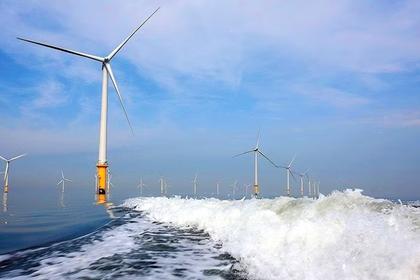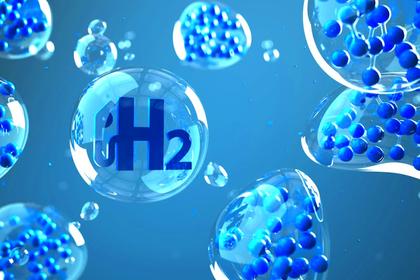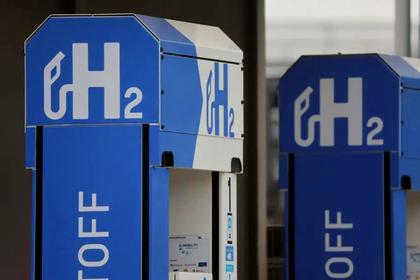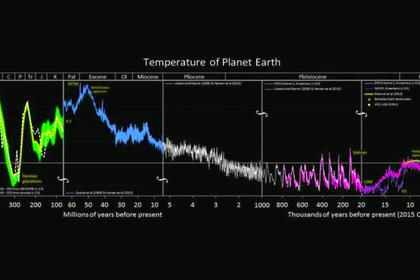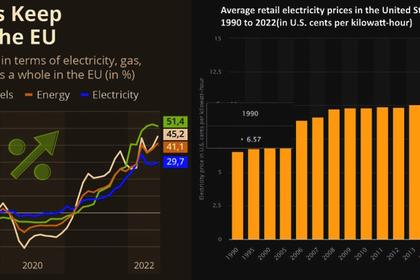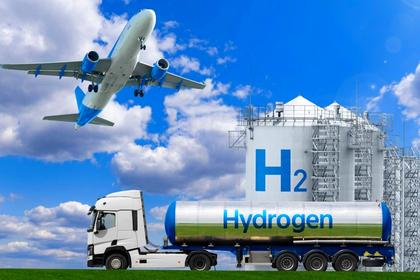
GLOBAL HYDROGEN ENERGY TRANSITION

By LLEWELLYN KING Executive Producer and Host, White House Media, LLC
ENERGYCENTRAL - Feb 25, 2024 - Since the energy crisis, which started in the fall of 1973, hydrogen has been bruited about as a future source of energy. But it has always been the understudy, standing in the wings, never making it onto the stage.
Now that may change.
An extraordinary new consortium, imagined and promoted by former Energy Secretary Ernest Moniz and Jennifer Granholm, the current energy secretary, wants to give hydrogen a starring role, to make it a viable option in the pursuit of net-zero emissions. The point person at the Department of Energy is David Crane, undersecretary for infrastructure.
The Paris climate accord of 2016 revitalized expectations for hydrogen. In the United States, the Biden administration has run with hydrogen, buttressed with the funding from the bipartisan infrastructure bill.
It has designated seven hydrogen hubs, widely dispersed geographically and each one reflecting the resources and capacities of the regions, and the companies and organizations in them which will produce the gas.
But there has been no organized market for hydrogen. That is the mission of the new consortium. It will be funded initially by the DOE, which has allocated $8 billion for hydrogen and pledged about $1 billion each to the seven hubs — some get a little more and some a little less. The remaining funding is available to the consortium for market creation.
The consortium, headed by Moniz and his Energy Futures Initiative Foundation, has brought together leading players in marketing: S&P Global, which has market knowledge and analytical ability; the Intercontinental Exchange, which organizes market platforms like the New York Stock Exchange; Dentons, the world’s largest law firm; and the MIT Energy Initiative, the famed university’s hub for energy research, education and outreach.
The mission of this group, called the Hydrogen Demand Initiative (H2DI), is to organize a market for “clean hydrogen,” to get it on stage in a starring role as the nation heads toward the goal of net-zero emissions by 2050.
One of the participants, Clinton Vince, who heads Dentons’ U.S. energy practice, said, “Dr. Moniz and his team at the Energy Futures Initiative Foundation have assembled a truly impressive consortium to undertake the design and implementation of demand markets for the seven hydrogen hubs selected by DOE.”
Dentons, Vince added, “thinks the development of markets for the clean hydrogen transition is one of the most consequential projects in the energy industry at the present time.”
In an interview, Moniz told me that the anticipated hydrogen customers are heavy industries, like steel and other processors, that use huge quantities of natural gas. In some cases, it will be used for electricity generation. But Moniz and the H2DI team are targeting hydrogen’s industrial and transportation uses.
The consortium plans for a gas market to center around the seven hydrogen hubs already identified for funding by the DOE and to find markets for the clean hydrogen coming from the hubs. These are located around the country where there is a possible hydrogen resource — either an abundance of electricity for electrolysis of water or natural gas, which will be reformed to release hydrogen, the carbon being captured on-site and either used or stored.
During the interview, Moniz explained the moveable nature of H2DI’s goals. For example, beyond process heat in manufacturing and obvious uses like that, he said they would be looking at long-haul trucking using hydrogen in conjunction with fuels cells, and even ship propulsion using ammonia as the carrier.
When I asked about the duration of the project, Moniz said, “The H2DI program, which the DOE is initiating and which we could help shape, has two phases. The first phase is five years, then there will be an evaluation — a stocktaking of where we are in terms of building that market. Then, with success, there would be a second five years. But 10 years is the maximum for this program.”
The initial work, Moniz said, would be planning and evaluation, which he hoped would be completed by the end of September or in October. He said they could then “reshape the consortium appropriately.” His emphasis was on a work-in-progress, not a completed structure.
Moniz said that what was meant by “clean” was hydrogen that might have been derived from natural gas, but which had had the carbon captured and stored or used for another purpose. It would also include hydrogen that was derived from water by electrolysis where there was no carbon burden.
Clean means “carbon-free” in the lexicon of H2DI and the market it is seeking to create.
With a chuckle, Moniz pointed out that there was, perhaps, a new designation of hydrogen on the way: “white hydrogen.” This is naturally occuring hydrogen. In geological formations, which is already powering a village in Mali, in West Africa, and which has also been discovered in France. South Africa has an active program searching for white hydrogen. There is research going on elsewhere.
Currently, there are no estimates of these reserves or whether they can be mined economically. Meanwhile, white hydrogen is an addition to the dream of a carbon pollution-free economy.
That, of course, will just add to the center-stage star power of hydrogen, as it comes into its own as a viable alternative fuel for many things.
---
This thought leadership article was originally shared with Energy Central's Energy Collective Group. The communities are a place where professionals in the power industry can share, learn and connect in a collaborative environment. Join the Energy Collective Group today and learn from others who work in the industry.
-----
Earlier:
